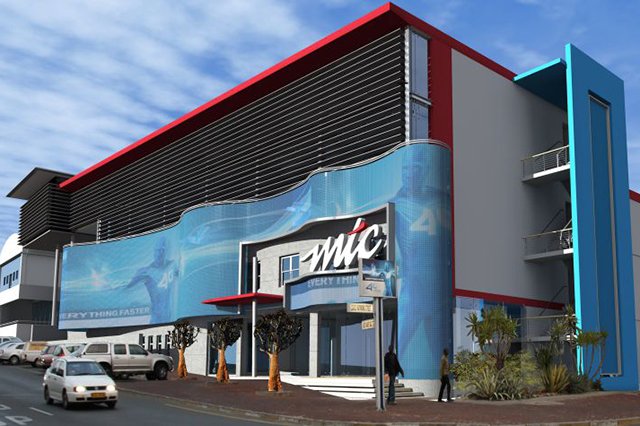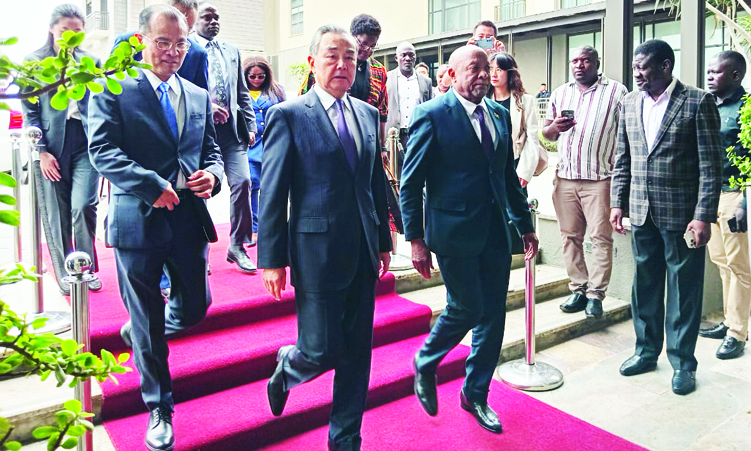Mobile Telecommunications Company (MTC) yesterday said it would not share its infrastructure with other industry players.
This came despite a report from the country’s regulator, the Communications Regulatory Authority of Namibia (Cran) indicating this is among the causes of the high cost of data for Namibian consumers.
Cran says Namibia’s data cost is the third highest in southern Africa due to its major telecommunications players’ unwillingness to share infrastructure.
Cran has also taken issue with these companies making it difficult for new players to enter the market.
“Of concern is the unwillingness of dominant licensees to implement active sharing, especially with new entrants in the market,” the regulator’s report says.
The two dominant local telecommunications companies are MTC, with 2,5 million customers, and Telecom Namibia Limited, with 410 541.
MTC spokesperson Tim Ekandjo yesterday said MTC has always been clear on infrastructure sharing.
“We know from experience based on our network intelligence and feedback from our customers that they struggle with congestion, and burdening our network with another operator would severely compromise the connectivity quality and overall customer experience we promise our customers,” he said.
Ekandjo said to enable infrastructure sharing, MTC would have to invest more in its network.
“But while we realise the importance of smart collaborations that would benefit societies, MTC in the past considered its obligation to share infrastructure whenever it rolls out new sites and approached all operators to co-build,” he said.
‘RESPONSE UNWELCOMING’
“The response from industry players has never been welcoming,” Ekandjo said.
He said this indicates that many operators do not have the appetite to invest in infrastructure, but develop an interest to share once infrastructure is established.
“In the final stance MTC is ever ready to co-invest,” he said.
Cran, however, believes infrastructure sharing could lead to lower prices for consumers, and plans to address the matter.
“On these grounds, a mitigation plan will therefore be formulated by Cran to enforce dominant licensees to comply with the framework on active infrastructure sharing through the applicable regulatory framework,” the report reads.
In its 2022 integrated annual report, the regulator explains that most of the disputes they have dealt with are due to infrastructure sharing issues.
“We have noted that active infrastructure sharing in Namibia, as opposed to passive infrastructure sharing, is currently limited, with most disputes declared by licensees pertaining to the aforementioned active infrastructure sharing.”
Cran says dominant service providers are willing to share passive infrastructure, such as ducts, poles, buildings, sites, masts, power supply, shelters, buildings and air-conditioning, but not active infrastructure.
This includes facilities or equipment used in the provision of telecommunications services, including all features, functions and capabilities provided by such facilities or equipment.
“Active infrastructure sharing is crucial for open-access sharing to reduce costs for the benefit of consumers, and can only happen when a licensee utilises the same radio network of another operator, such as national roaming or a mobile virtual network operator,” Cran states.
The regulator wants the sector to be restructured to address high broadband prices and low download speeds.
“Namibia can, however, regain its leading role in the affordability index, but needs to restructure the sector, investigate ways to attract private sector investment, and improve levels of competition,” the regulator says.
Cran also wants infrastructure sharing to limit the duplication of infrastructure.
“So that new investments can be geared towards underserved areas and improved customer service, significantly reducing barriers to market entry, resulting in more operators potentially entering the market and consumers having more choice in terms of products and services,” Cran advocates in its report.
The regulator says this would reduce costs, improve quality of service and lower prices, which it expects to alleviate pressure on network deployment.
SADC
“The African affordability ranking indicates that Namibia dropped from fourth cheapest on the continent in quarter one of 2016, to the 33rd-cheapest country in quarter one of 20
21 for 5 gigabytes (GB) per month,” the report further reads.
In the Southern African Development Community (SADC), Namibia’s data costs are the third-most expensive.
The Worldwide Mobile Data Pricing 2022 report states that 1 gigabyte (GB) of data in Botswana costs about $15,55 (N$253,47), while in Seychelles it is $12,66 (N$206,56) on average.
In Namibia, the price of 1GB of data costs an average of $10,52 (N$171,48), and the cheapest data is available in Tanzania, where the average cost of 1GB is $0,71 (N$11,57).
Telecom Namibia (TN) yesterday reiterated MTC’s sentiments on compromising quality for their customers if they share infrastructure.
“Where sharing is not possible it would be due to inadequate capacities for TN to ensure an optimum quality of experience for its own customers as the active or technical capacities are currently limited,” Telecom spokesperson Nomvula Kambinda told The Namibian.
TN is currently sharing its passive infrastructure via PowerCom (100% shareholding by TN) to existing and new entrants.
“Active infrastructure has technical limitations, especially on the data side of the network,” Kambinda said.
Kambinda argues that very expensive undersea cables and inland infrastructure to connect the most remote areas are some of the reasons for the high data costs.
[These are] “high operational costs to maintain legacy networks and infrastructure, especially in non-urban areas; high service level agreements with international technology partners; as well as end-user devices that are imported at very high costs among others,” Kambinda said.
Stay informed with The Namibian – your source for credible journalism. Get in-depth reporting and opinions for
only N$85 a month. Invest in journalism, invest in democracy –
Subscribe Now!








